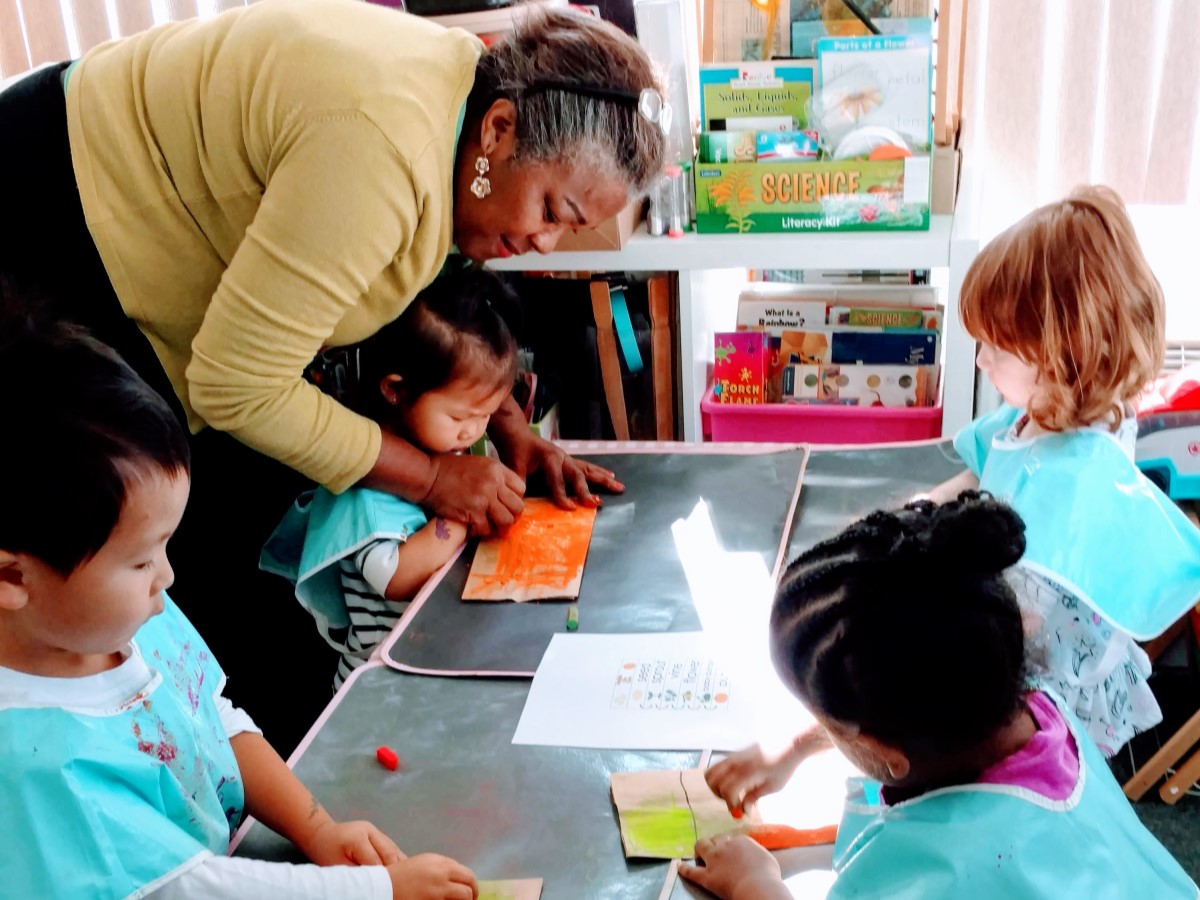Experiences of Early Child Care and Education Operators During the Pandemic
February 1, 2023

Experiences among early care and education stakeholders, sponsors, and center directors during the COVID-19 pandemic
In December 2022, the Indiana University CACFP Project Team released a report describing the child nutrition and care provision experiences among early care and education (ECE) stakeholders, sponsors, and center directors during the COVID-19 pandemic. The study was conducted in four states and a variety of ECE stakeholders participated. The study identifies six common experiences among ECE stakeholders during the COVID-19 pandemic.
Why it Matters
One in seven U.S. children experience poverty, which puts them at risk for poor nutrition. As approximately two-thirds (62%) of children 6 years old or younger attend ECE programs for at least 27 hours per week, ECE settings are important for the implementation of programs that aim to reduce poverty-related health disparities, such as food insecurity. During the pandemic, ECE programming was impacted by state-instituted stay-at-home orders, mandated program shut-downs, and limited child enrollment. However, the creation of COVID waivers allowed more flexibility for ECEs to continue to connect families with food during the pandemic. The experiences of ECEs during this uncertain time highlights the need to prioritize allocation of federal and state funding to support ECE.
Experiences During the Temporary Closure of Several ECE Programs
Several programs (21%) were forced to shut down temporarily due to:
- Fear/concern about the coronavirus
- Low child enrollment since many parents were working from home
- The occurrence of COVID-19 cases on-site
Some ECE Directors reported low child enrollment (80%) and loss of income from tuition (62%), which caused them to lay off staff. When workplaces reopened several ECE staff opted not to return because of concerns about COVID-19, causing several ECE programs (49%) to experience staff shortages. The temporary closure of ECE also affected sponsors, which lost their 15% administrative fee for administering CACFP.
Additional Responsibilities and Unanticipated Expenses for ECE Programs
ECE directors took on additional responsibilities to implement protective health and safety measures, such as:
- conducting daily temperature checks;
- making sure children kept on face masks;
- installing handwashing and sanitizing stations;
- ensuring that children and staff washed and sanitized their hands;
- not allowing parents in the buildings;
- enforcing face masks among staff; and/or
- training staff on how to express emotion/praise for children behind their masks.
Due to additional precautions, ECEs incurred unanticipated expenses from having to purchase personal protective equipment (gloves and masks). Early-on in the pandemic, directors had difficulty finding personal protective equipment and supplies. Although they are now easier to find, many items have become more expensive, causing ECEs to increase tuition.
Difficulty Keeping Up with Constantly Changing COVID-19 Guidance
ECEs had difficulties keeping up with constantly changing guidelines that were often inconsistent across federal, state, and local agencies. ECE Directors stated that they also lacked the support they needed to implement protective regulations.
Encounters During Shifts from In-Person to Virtual Training and Monitoring
While transitioning from in-person to virtual training and monitoring, ECE programs, stakeholders and sponsors faced challenges stemming from a lack of computers or internet access at ECE programs, especially small and rural programs with limited financial resources. As a result, some stakeholders/sponsors were restricted in their ability to conduct training and CACFP compliance monitoring virtually, instead having to rely on telephones. Some sponsors were prompted to invest in communication technologies that caused unplanned expenses and required additional staff training.
Changes to Nutrition Practices at ECE
Due to COVID-19, nutrition practices were changed in the following ways:
- halting family-style meals (reported by 41% of ECE directors);
- social distancing during mealtimes;
- switching to disposable utensils; and/or
- individually-packing meals to prevent COVID-19 transmission.
ECE program directors reported experiencing food shortages, especially of milk, at the start of the pandemic, however directors identified CACFP waivers for food substitutions to be helpful. Nearly one-third of directors said COVID-19 made it difficult to find (30%) and more expensive to purchase (34%) healthy foods. As a result, ECE directors (20%) reported using more canned/frozen fruits and vegetables instead of fresh options. However, 40% of ECE directors reported that they did not make any changes to the menus/meals they provided.
In general, CACFP waivers were described as beneficial, and many stakeholders and sponsors recommended that aspects of the waivers be made permanent. In particular, they identified the waiver for non-congregate feeding to be beneficial for programs that are forced to shut down for weather-related reasons or emergencies. Respondents also noted that the virtual monitoring waiver would save time and cost of travel to rural/remote areas by sponsors.
Need to Prioritize ECE Funding
Although ECEs faced challenges during the pandemic, participants noted that it also highlighted the need to prioritize funding for ECE. Study participants reiterated that emergency funding helped to keep programs afloat. In fact, 57% of directors reported receiving relief funds from state agencies, and 46% reported funding from other organizations.
To learn more about the experiences of ECE during the pandemic, read Experiences pertaining to child nutrition and care provision among early care and education stakeholders, sponsors, and center directors during the COVID-19 pandemic: A multi-method study.
